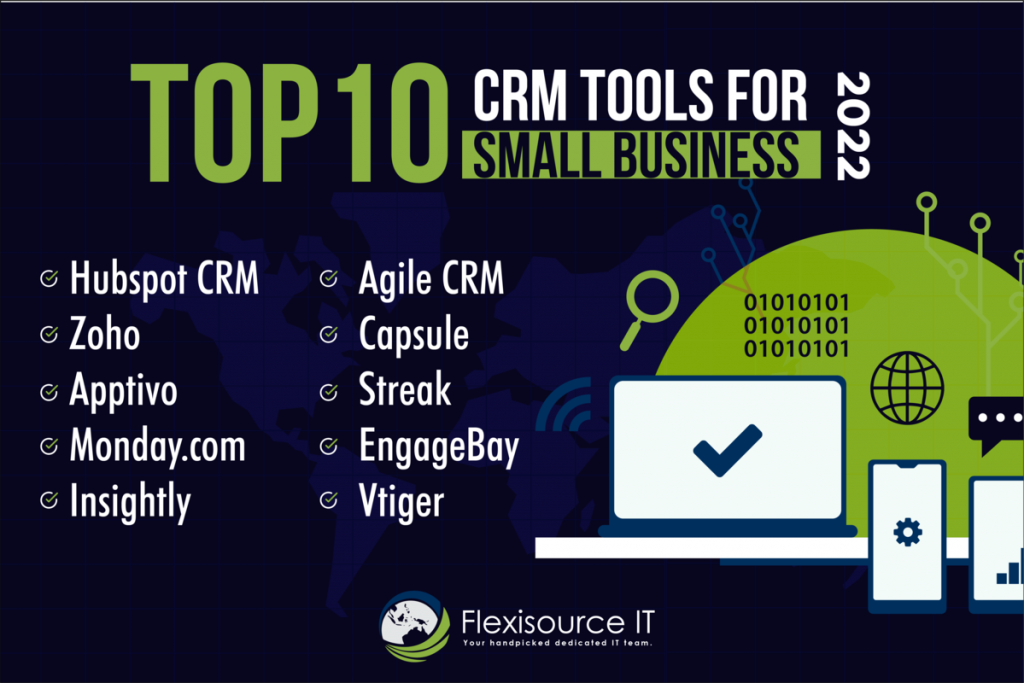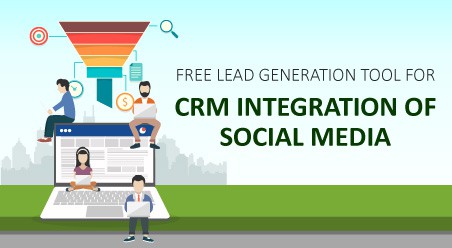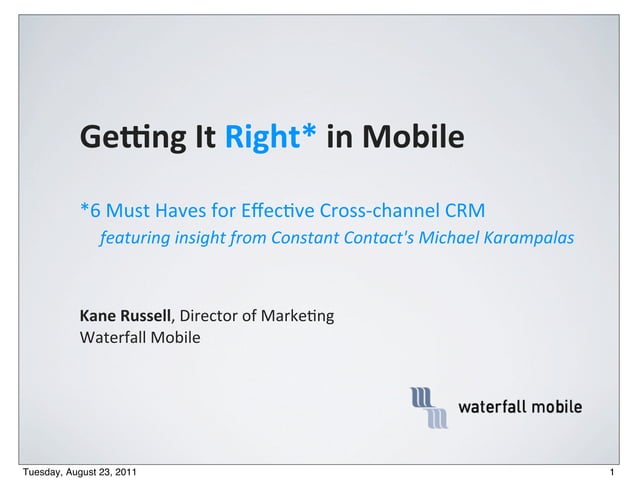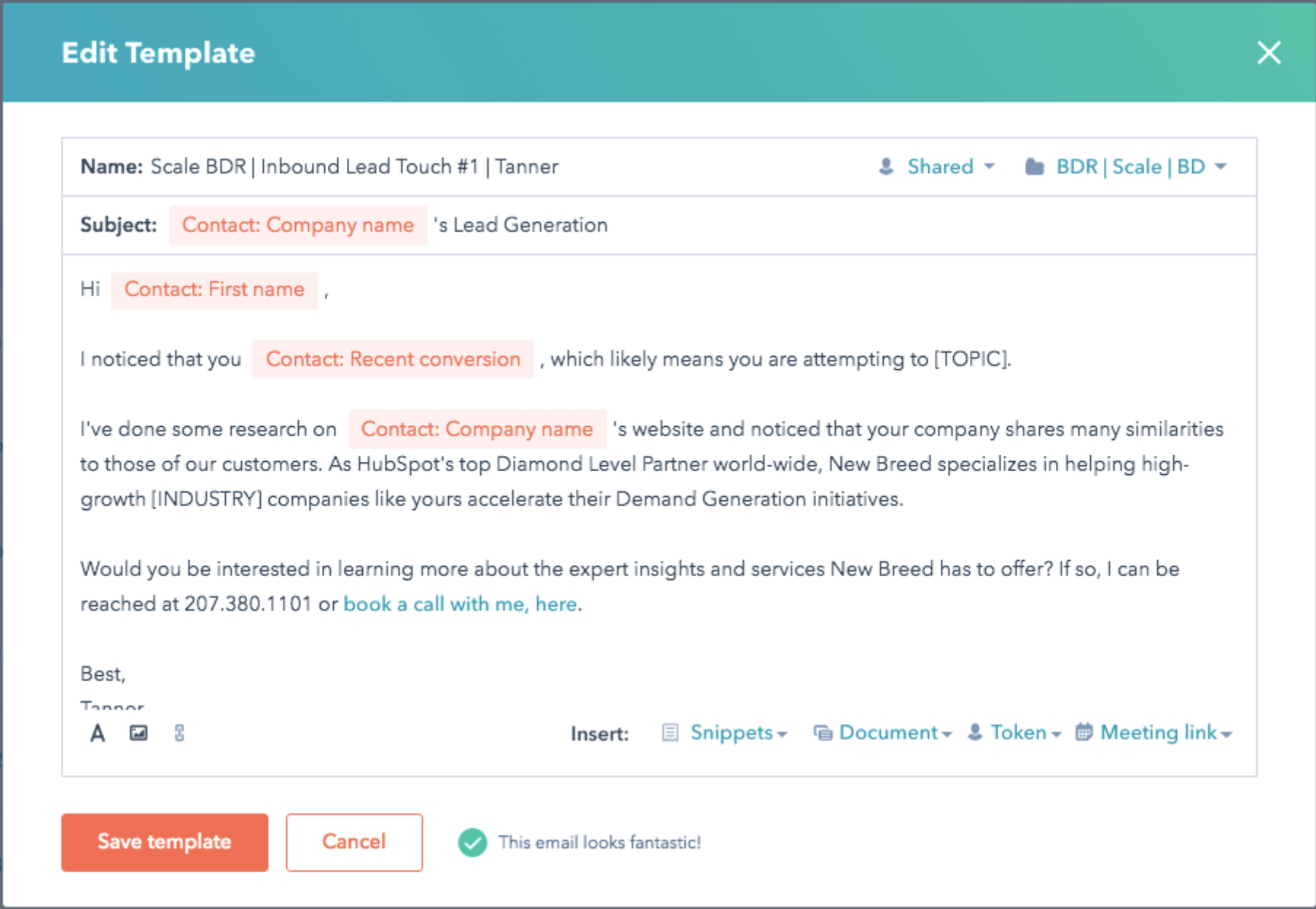Level Up Your Podcast: The Ultimate CRM Guide for Small Podcasters

The Podcast Revolution: Why Small Podcasters Need a CRM
Podcasting has exploded. It’s no longer just a niche hobby; it’s a bustling marketplace of ideas, stories, and expertise. Millions of listeners tune in daily, making it a prime space for connection, community building, and, yes, even monetization. But with opportunity comes complexity. As a small podcaster, you wear many hats: content creator, editor, marketer, and, increasingly, business owner. Juggling all these roles can feel overwhelming, and that’s where a Customer Relationship Management (CRM) system steps in – your digital command center for podcasting success.
Before diving into specific CRM recommendations, let’s understand why a CRM is crucial for small podcasters. Think of it as the central hub for all your audience interactions. It’s where you store contact information, track listener engagement, manage sponsorships, and analyze your show’s performance. Without a CRM, you’re likely using a patchwork of spreadsheets, email inboxes, and scattered notes. This fragmented approach leads to:
- Missed Opportunities: Failing to follow up with potential sponsors, overlooking valuable listener feedback, or missing deadlines.
- Inefficient Workflows: Wasting time on manual tasks that a CRM can automate.
- Lost Revenue: Failing to nurture leads, track advertising performance, or effectively manage affiliate programs.
- Strained Relationships: Forgetting important details about your listeners or sponsors, leading to a disconnect.
A CRM empowers you to streamline your operations, build stronger relationships, and ultimately, grow your podcast. It moves you from being a hobbyist to a professional, enabling you to treat your podcast as a valuable business.
Key Features to Look for in a CRM for Podcasters
Not all CRMs are created equal. When choosing the best CRM for your small podcast, consider these essential features:
1. Contact Management
This is the foundation of any CRM. It allows you to:
- Store contact information: Name, email, social media handles, website, and any other relevant details about listeners, sponsors, guests, and affiliates.
- Segment your audience: Categorize contacts based on their interests, listening habits, or engagement levels. This allows for targeted marketing and personalized communication.
- Add custom fields: Tailor your CRM to your specific needs by creating custom fields to capture unique information, such as favorite podcast episodes, sponsorship deals, or guest appearance details.
2. Email Marketing Integration
Email marketing is still a powerful tool for podcasters. Your CRM should seamlessly integrate with email marketing platforms to:
- Send newsletters and announcements: Keep your audience informed about new episodes, upcoming events, and special offers.
- Automate email sequences: Set up automated email campaigns to onboard new subscribers, nurture leads, and promote your sponsors.
- Track email performance: Monitor open rates, click-through rates, and conversions to optimize your email marketing efforts.
3. Lead Management
If you’re actively seeking sponsors, guests, or affiliate partners, lead management is crucial. Your CRM should enable you to:
- Track leads: Capture and organize information about potential sponsors, guests, and partners.
- Manage the sales pipeline: Track the progress of each lead through the sales funnel, from initial contact to closing a deal.
- Set reminders and follow-up tasks: Ensure you don’t miss important deadlines or follow-up opportunities.
4. Task Management and Automation
Time is precious for podcasters. Look for a CRM that allows you to:
- Create and assign tasks: Schedule reminders for episode releases, sponsor follow-ups, and other important activities.
- Automate repetitive tasks: Automate tasks like sending welcome emails, following up with leads, and updating contact information.
- Improve efficiency: Free up your time to focus on content creation and audience engagement.
5. Reporting and Analytics
Data is your friend. A good CRM provides insights into your podcast’s performance by:
- Tracking listener engagement: Monitor downloads, listens, and other key metrics.
- Analyzing sponsor performance: Track the effectiveness of your sponsorship deals and measure ROI.
- Generating reports: Create custom reports to gain a deeper understanding of your audience, sponsors, and overall podcast performance.
6. Integrations
Your CRM should integrate with other tools you use, such as:
- Podcast hosting platforms: Integrate with platforms like Libsyn, Buzzsprout, or Podbean to track downloads and listener data.
- Social media platforms: Connect with your social media accounts to manage your online presence and engage with your audience.
- Payment processors: Integrate with payment processors like PayPal or Stripe to accept donations or sell merchandise.
Top CRM Choices for Small Podcasters
Now, let’s explore some of the best CRM options specifically tailored for small podcasters. The “best” option depends on your individual needs, budget, and technical expertise. But these are some of the most popular and effective choices:
1. HubSpot CRM
Why it’s great: HubSpot offers a free, robust CRM that’s perfect for beginners. It’s incredibly user-friendly and provides a comprehensive suite of features, including contact management, email marketing, lead management, and reporting. The free version is surprisingly powerful and sufficient for many small podcasts.
Key features for podcasters:
- Free forever: Get started without any upfront investment.
- Contact management: Store and organize all your contact information.
- Email marketing: Send newsletters and automated email sequences.
- Lead management: Track potential sponsors and guests.
- Reporting and analytics: Gain insights into your podcast’s performance.
- Integrations: Integrates with many popular apps, including social media platforms.
Potential drawbacks: The free version has limitations on the number of contacts and emails you can send. As your podcast grows, you may need to upgrade to a paid plan.
2. Zoho CRM
Why it’s great: Zoho CRM is another excellent option, offering a free plan with impressive features. It’s known for its customizability and powerful automation capabilities. It’s a great option for podcasters who want a CRM that can grow with them.
Key features for podcasters:
- Free plan: A generous free plan for up to three users.
- Contact management: Organize and manage your contacts effectively.
- Lead management: Track and nurture potential sponsors and guests.
- Automation: Automate repetitive tasks to save time.
- Reporting and analytics: Generate reports to track your podcast’s performance.
- Customization: Tailor the CRM to your specific needs.
Potential drawbacks: The user interface can be a bit overwhelming at first, and the free plan has some limitations on features and storage.
3. Pipedrive
Why it’s great: Pipedrive is a sales-focused CRM that’s ideal if you’re actively pursuing sponsorships or selling products/services related to your podcast. It excels at managing the sales pipeline and tracking deals.
Key features for podcasters:
- Visual sales pipeline: Easily track the progress of your deals.
- Lead management: Organize and nurture your leads.
- Automation: Automate repetitive tasks to save time.
- Reporting and analytics: Track your sales performance.
- Integrations: Integrates with various tools, including email marketing platforms.
Potential drawbacks: Pipedrive is primarily focused on sales, so its contact management features may not be as comprehensive as those of other CRMs. It is also a paid solution, with no free plan.
4. Agile CRM
Why it’s great: Agile CRM offers a free plan that includes a wide range of features, including contact management, email marketing, and sales automation. It’s a good option for podcasters who want an all-in-one solution.
Key features for podcasters:
- Free plan: A generous free plan for up to 10 users.
- Contact management: Store and organize your contacts.
- Email marketing: Send newsletters and automated email campaigns.
- Sales automation: Automate repetitive tasks.
- Reporting and analytics: Track your podcast’s performance.
- Integrations: Integrates with various tools.
Potential drawbacks: The user interface can be a bit cluttered, and the free plan has some limitations on features and storage.
5. Capsule CRM
Why it’s great: Capsule CRM is a user-friendly CRM that’s easy to set up and use. It’s a good option for podcasters who want a simple and intuitive CRM.
Key features for podcasters:
- User-friendly interface: Easy to learn and use.
- Contact management: Store and organize your contacts.
- Lead management: Track potential sponsors and guests.
- Task management: Manage your tasks and deadlines.
- Integrations: Integrates with various tools.
Potential drawbacks: Capsule CRM is a paid solution, with no free plan. Its features are not as extensive as some other CRMs.
6. Less Annoying CRM
Why it’s great: As the name suggests, Less Annoying CRM is designed to be simple and straightforward. It’s a good option for podcasters who want a CRM that’s easy to learn and use.
Key features for podcasters:
- Simple interface: Easy to learn and use.
- Contact management: Store and organize your contacts.
- Lead management: Track potential sponsors and guests.
- Task management: Manage your tasks and deadlines.
- Integrations: Integrates with various tools.
Potential drawbacks: Less Annoying CRM lacks some of the advanced features of other CRMs. It is a paid solution, with no free plan.
Choosing the Right CRM: A Step-by-Step Guide
Selecting the best CRM is a crucial decision. To make the right choice, follow these steps:
1. Assess Your Needs
Before you start comparing CRMs, take a moment to evaluate your podcasting needs. Ask yourself:
- What are your goals? Do you want to attract sponsors, grow your audience, sell merchandise, or all of the above?
- What are your biggest challenges? Are you struggling with organization, lead management, or email marketing?
- What are your current workflows? How do you currently manage your contacts, leads, and tasks?
- What integrations do you need? Do you need to integrate with your podcast hosting platform, email marketing service, or social media accounts?
Answering these questions will help you identify the features and functionalities that are most important to you.
2. Define Your Budget
CRM pricing varies widely. Some CRMs offer free plans, while others require a monthly subscription. Determine how much you’re willing to spend on a CRM. Consider the long-term cost, including any potential upgrades or add-ons.
3. Research and Compare Options
Once you have a clear understanding of your needs and budget, research the different CRM options. Read reviews, compare features, and consider free trials or demos. Look at the options listed above and see which ones align with your goals.
4. Consider Your Technical Skills
Some CRMs are more complex than others. If you’re not tech-savvy, choose a CRM that’s easy to set up and use. Look for a CRM with a user-friendly interface and helpful documentation.
5. Prioritize Key Features
Make a list of the features that are most important to you. Focus on CRMs that offer these features. Don’t get bogged down by features you don’t need.
6. Test Drive the CRM
If possible, sign up for a free trial or demo of the CRMs you’re considering. This will give you a chance to test the features and see if the CRM is a good fit for your needs. If you can’t do a trial, watch tutorials or demo videos.
7. Choose the Right CRM and Get Started
Once you’ve evaluated your options and tested the CRMs, choose the one that best meets your needs. Then, get started! Import your contacts, set up your workflows, and start using the CRM to manage your podcast.
Tips for Maximizing Your CRM’s Potential
Once you’ve chosen your CRM, here are some tips for getting the most out of it:
- Import all your data: Migrate all your existing contact information, lead data, and other relevant information into your CRM.
- Customize your CRM: Configure the CRM to match your specific needs. Set up custom fields, create workflows, and personalize your settings.
- Train your team: If you have a team, train them on how to use the CRM effectively.
- Use automation: Automate repetitive tasks to save time and improve efficiency.
- Track your progress: Monitor your podcast’s performance and use the CRM’s reporting features to track your progress.
- Regularly update your data: Keep your contact information and other data up-to-date.
- Integrate with other tools: Connect your CRM with your podcast hosting platform, email marketing service, and other tools.
- Review and optimize: Regularly review your CRM setup and make adjustments as needed.
Beyond the Basics: Advanced CRM Strategies for Podcasters
Once you’ve mastered the fundamentals, consider these advanced strategies to take your CRM game to the next level:
1. Advanced Segmentation
Don’t just segment by basic criteria. Go deeper. Segment your audience based on:
- Episode listening behavior: Identify listeners who regularly tune into specific episode types or series.
- Engagement levels: Pinpoint your most active listeners (those who comment, share, and engage with your social media).
- Sponsorship interests: If you’re pitching sponsors, segment your audience by demographics and interests to create targeted proposals.
This level of segmentation allows for hyper-personalized communication and more effective marketing.
2. Automated Workflows for Sponsorship Management
Create automated workflows to streamline sponsor outreach, management, and reporting. For example:
- Automated outreach: When a new lead is identified, automatically send them an introduction email with your media kit.
- Automated follow-up: Set up follow-up tasks to ensure you stay on top of sponsor communications.
- Automated reporting: Generate automated reports on sponsorship performance to provide sponsors with tangible results.
3. Integration with Podcast Analytics
Connect your CRM with your podcast analytics platform (e.g., Chartable, Podstat) to get a 360-degree view of your audience. This allows you to:
- Correlate listener data with contact information: Understand which listeners are most engaged with your content and sponsors.
- Personalize your content strategy: Tailor your episodes and guest selection based on audience preferences.
- Improve sponsorship targeting: Identify the best sponsors to reach your most engaged listeners.
4. Listener Surveys and Feedback Integration
Use your CRM to collect and analyze listener feedback. Integrate with survey tools (e.g., SurveyMonkey, Google Forms) to:
- Gather listener insights: Understand what your audience loves (and doesn’t love) about your show.
- Identify potential sponsors: Ask your listeners what products or services they’re interested in.
- Improve your content: Use feedback to refine your content and format.
5. Lead Nurturing for Merchandise Sales
If you sell merchandise, use your CRM to nurture leads and convert them into customers. Create automated workflows that:
- Send welcome emails to new subscribers: Introduce your merchandise and offer a discount.
- Segment your audience based on interests: Target your merchandise promotions to specific listener segments.
- Track purchase history: Understand which listeners are most likely to buy your merchandise.
The Future of CRMs for Podcasters
As podcasting continues to evolve, so will CRMs. Here are some trends to watch:
- AI-powered CRMs: Expect to see more CRMs that leverage AI to automate tasks, provide insights, and personalize communication.
- Deeper integrations: CRMs will integrate with an even wider range of tools, including podcast editing software and social media management platforms.
- Focus on data privacy: With increasing concerns about data privacy, CRMs will need to prioritize data security and compliance.
- More specialized features: Expect to see more CRMs that are specifically designed for podcasters, with features tailored to their unique needs.
Final Thoughts: Embrace the Power of a CRM
Choosing the right CRM for your podcast is an investment in your future. It’s not just about managing contacts; it’s about building relationships, streamlining your operations, and ultimately, growing your podcast. By following the tips and recommendations in this guide, you can find the perfect CRM to empower your podcasting journey and take your show to the next level. Don’t delay; start exploring your options today and unlock the full potential of your podcast!




